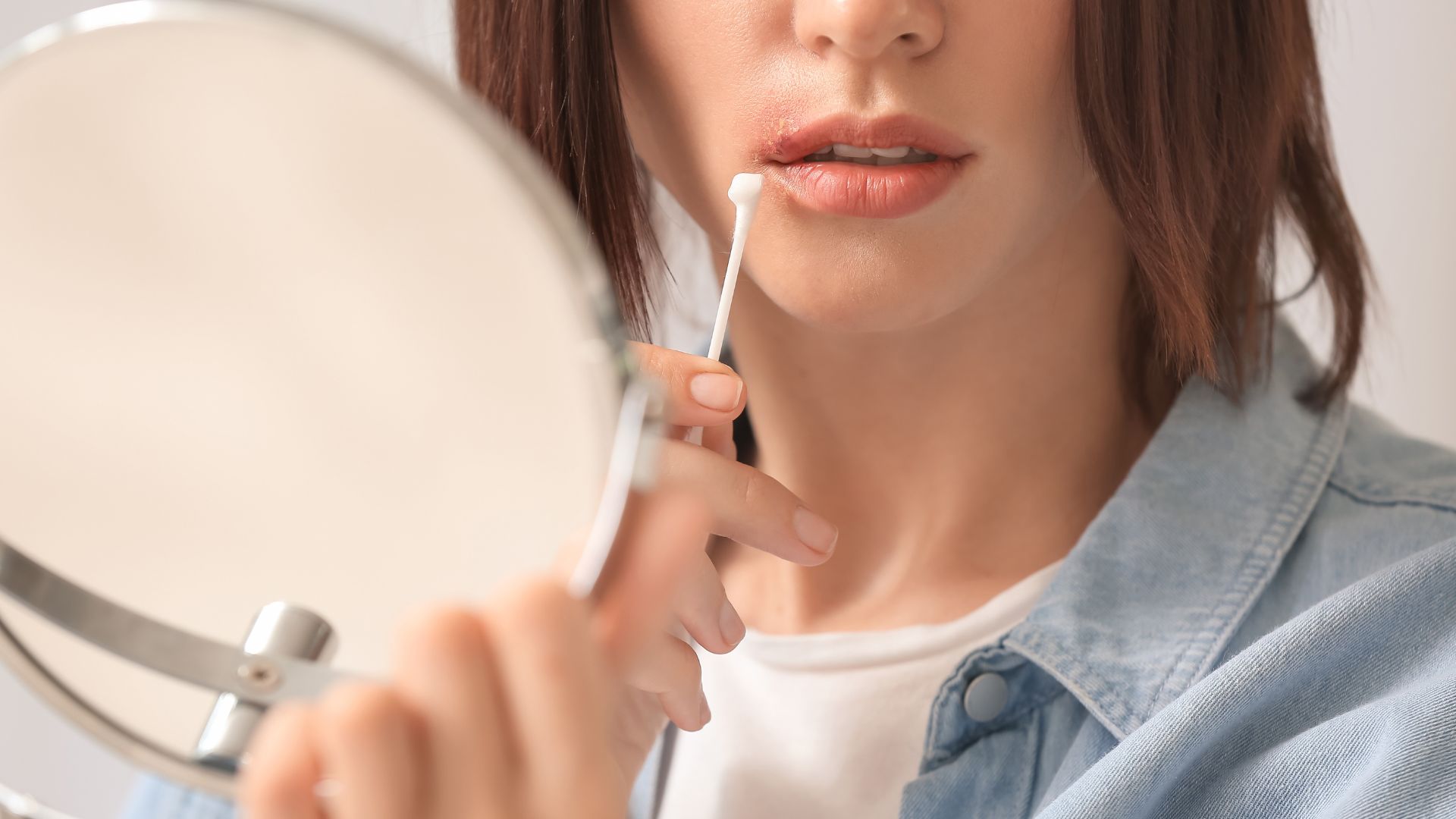The virus that is responsible for cold sores and genital herpes outbreaks is called the Herpes Simplex virus, or HSV. The vast majority of the world’s population is at least familiar with its most common manifestation, the cold sore. In fact, it is so common that it is estimated that 67% of the world’s population (that’s 3.7 BILLION people) have HSV-1, and 13% have HSV-2 (more on those types shortly). This virus is close to humanity, and has been for a very long time. The virus is quite easily transmissible, even without symptoms, and has a unique way of getting around our defence systems. This allows it to remain in the body indefinitely in an inactive state until conditions are more favourable for it to replicate and shed.
For a vast proportion of people, HSV infections cause only mild or no symptoms, and some may not even know they have been infected. Whether it’s a cold sore, or a gential herpes outbreak, it is not a serious infection unless the person’s immune system is in some way compromised. For those that do have symptoms, it typically presents as tingling, pain, or itching of the skin, followed by a sore rash that looks like a fluid-filled blister surrounded by red skin. This is its most contagious state. The rash would linger for a little while, may ulcerate or crust over, and eventually heal.
More serious to some than the discomfort of the rash, is the harsh and undeserved stigma that accompanies infection. The word ‘herpes’ has such negative connotation in our society, that it causes a lot of grief and shame for those billions of people. If you can think of 10 people you know, it’s extremely likely that at least half of them have at least one type of HSV, and surely none of them deserve to feel shame about it.

What are the types of HSV?
Speaking of types, there are two: HSV-1 and HSV-2. The first is the most common one, and most frequently causes oral outbreaks, aka cold sores. It can however be transferred to the genital area and cause the same symptoms down there. HSV-2 is more specific, and tends to just cause genital infections.
How does HSV get transmitted?
HSV jumps from person to person through direct contact. Unlike other sexually transmitted infections, HSV does not rely on bodily fluids for transmission, simply skin contact is all that is needed. Moreover, while it is most contagious while the rash is active, viral shedding can take place without symptoms as well. Meaning, people can transmit HSV without even being aware of the infection at all. In fact, many people have been exposed to HSV-1 in childhood.
Does HSV go away?
This is the tricky bit – no, HSV doesn’t really go away. The reason for that is because it evolved a way to evade the immune system, and hide out along nerve roots in the body in an inactive state, like hibernation. This is called latency. HSV can stay latent without any symptoms whatsoever for various lengths of time, waiting for the immune system to be less vigilant before reappearing and causing an outbreak. Some people get them kind of regularly, while others can go years without an outbreak. This is why it’s so important to ensure that your immune system is always in the best shape possible, so it keeps the virus latent, and outbreaks very few and far between.
Is there a cure for HSV?
No, there are no cures for HSV at this time, but there are prescription antiviral medications that your doctor could recommend that can help heal outbreaks and keep them at bay. Researchers are also working on a vaccine against HSV-2, but that’s still in the works.

What can I do to prevent cold sores and herpes outbreaks?
Prevention
The best treatment is prevention. If you don’t already have one of the HSV types, and you wish to keep it that way, you can protect yourself with some safe sex practices. First off, and this should be obvious, don’t come in contact with any types of open sores, blisters, and rashes that you may encounter. Condoms and dental dams can help reduce your exposure, but not totally because viral shedding can occur from areas not covered by them.
Immune Support
If you already have HSV, then you’d want to keep your immune system in tip-top shape to prevent cold sore and herpes outbreaks. The most basic approach is to maintain a diet that is rich with fruits, vegetables, legumes, and protein, while low in saturated fats, sugar, red meat, and processed foods. If you suspect food sensitivities, identifying those and removing them from your diet will support proper, balance immune function and reduce inflammation.
Stress Management
Stress, especially chronic stress, tends to down-regulate the proper functioning of the immune system. When your body feels like it’s always in a fight-or-flight mode, immune function becomes secondary. This allows for latent infections such as HSV to resurface and cause outbreaks. Keeping stress levels low and manageable becomes really important to keep the cold sores and genital outbreaks at bay.
If you cannot avoid sources of stress, then take up practices to reduce its impact on your body, such as meditation, measured breathing, physical exercise, therapy, creative pursuits and spending time in nature.





